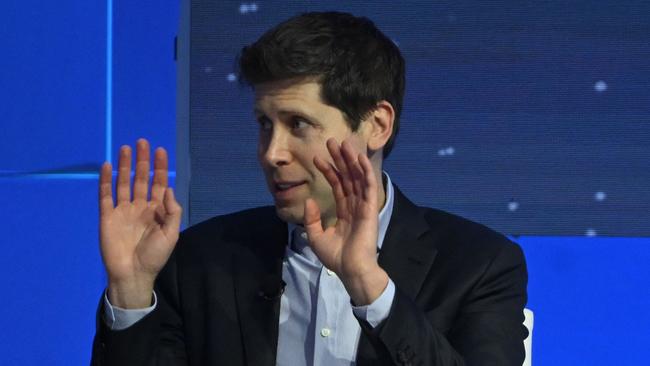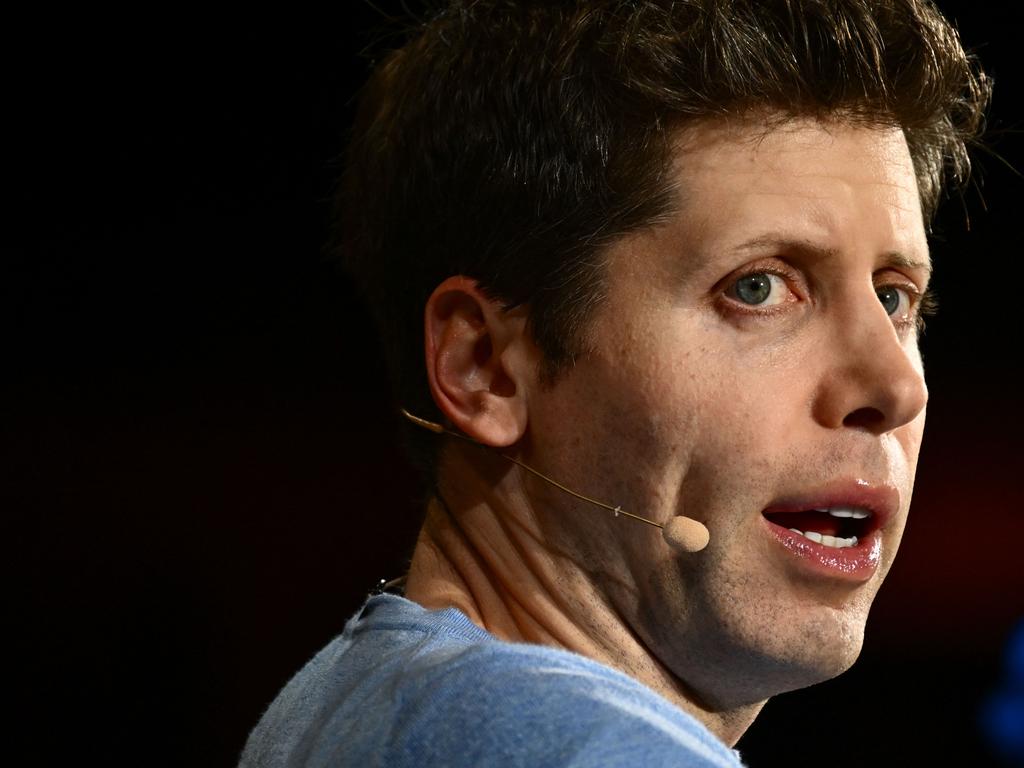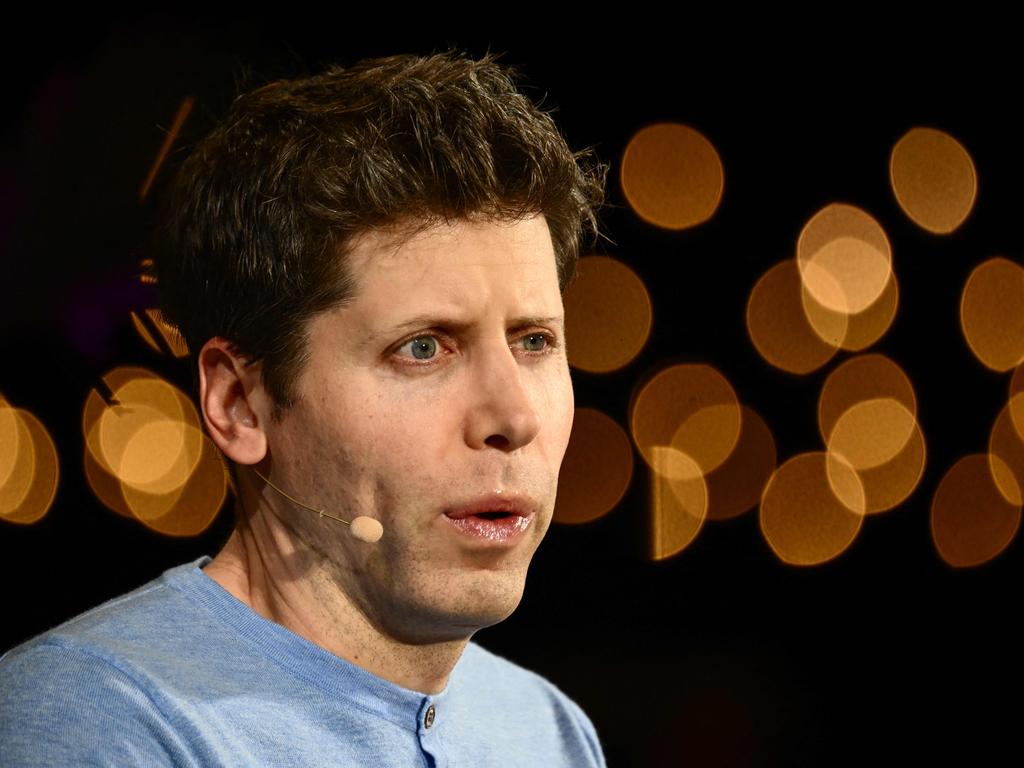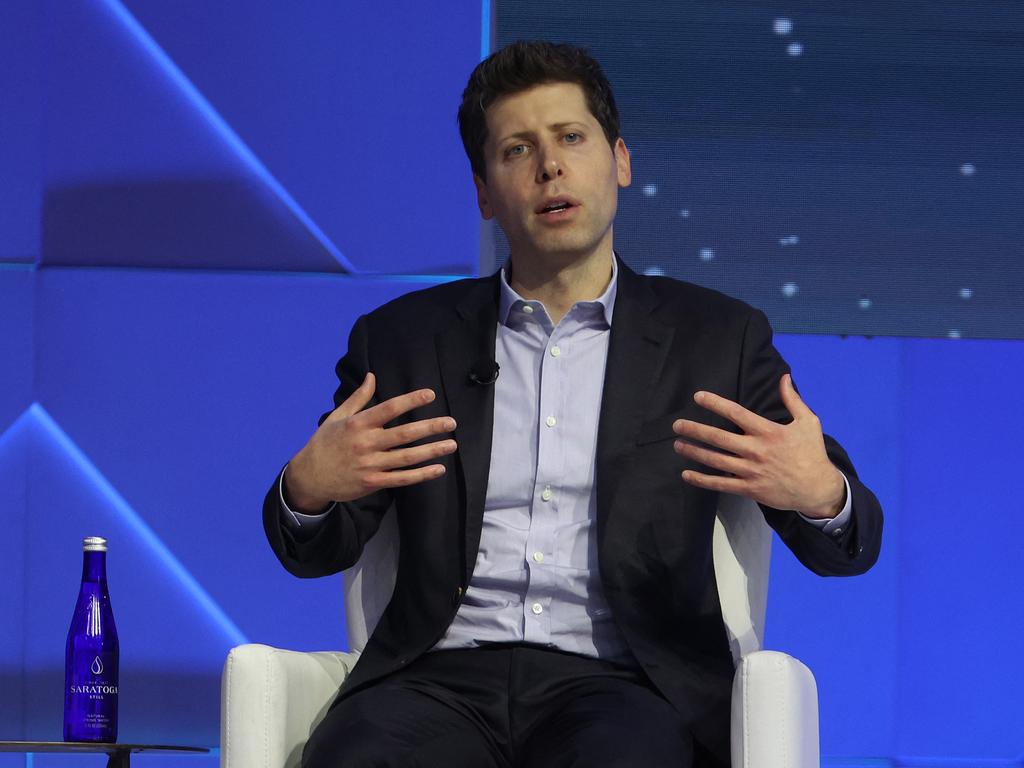Sam Altman to join Microsoft after OpenAI ousting
After the OpenAI founder’s bid to return was unsuccessful, Microsoft said that he would lead a new advanced AI research team at the tech giant.

Sam Altman’s bid to return to OpenAI after being ousted on Friday faltered on Monday (AEDT), as the board that fired him refused to agree to the proposed terms of his reinstatement and quietly found someone else to take Altman’s spot.
Emmett Shear, former chief executive of Twitch, was named interim CEO, according to people with knowledge of the matter. Altman was shocked by the decision, previously feeling confident he would be able to return to the company he co-founded, according to a person familiar with his thinking.
The developments ended a dizzying weekend of uncertainty but left other questions unanswered about the company, which has been at the centre of the artificial intelligence boom after it launched its viral chatbot ChatGPT almost exactly a year ago.
With ChatGPT, Altman became the face of the AI moment, and he built the company into one of the most valuable start-ups in the tech industry. He also was key to the company’s close relationship with Microsoft, which became highly dependent on its technology and remains OpenAI’s largest investor with a 49 per cent stake.
That relationship looks set to continue. Microsoft CEO Satya Nadella posted on X late Sunday both that the company is committed to its partnership with OpenAI and that Altman and Greg Brockman, OpenAI’s president who resigned Friday in protest over Altman’s ouster, would join Microsoft to lead a new advanced AI research team.
“We look forward to moving quickly to provide them with the resources needed for their success,” Nadella wrote.
Altman was at OpenAI’s San Francisco office Sunday, his camp having succeeded in bringing the board to the negotiating table as investors and many employees pushed over the weekend to help him retake control of OpenAI.
Altman entered OpenAI’s headquarters with a guest badge and posted on X: “first and last time i ever wear one of these.” As talks continued on Sunday, boxes of takeout food were seen being delivered to the company’s offices.
first and last time i ever wear one of these pic.twitter.com/u3iKwyWj0a
— Sam Altman (@sama) November 19, 2023
Ultimately, Altman’s insistence that the current board resign largely doomed his counter-rebellion, people familiar with the matter said. Despite pressure from investors, including Microsoft and venture-capital firm Thrive Capital, the board members fended off their attempts to reinstate Altman, empowered by an unusual corporate structure that gave them more power than investors that poured billions into the AI company.
Mira Murati, who had been named interim CEO on Friday alongside news of Altman’s ouster, had indicated her support for Altman’s return, posting a heart in response to Altman’s post about his love for OpenAI on X, formerly Twitter, on Saturday night.
Murati will stay in her role as OpenAI’s chief technology officer, one person familiar with the board’s thinking said.
Within OpenAI, the situation remains tumultuous. Employees at OpenAI were in an uproar through the weekend and several researchers threatened to quit the company unless Altman returned, according to people familiar with the matter. The board chose Shear partly because of his willingness to navigate such a tricky situation with employees, a person familiar with the board’s thinking said.
Co-founder and board member Ilya Sutskever – who fired Altman on Friday – told employees about Shear’s appointment late Sunday night. Following the news, some OpenAI employees posted on X that they had quit.
Sutskever had clashed with Altman around the safety of the company’s artificial-intelligence efforts in recent weeks, but people familiar with the board’s thinking said those safety disputes weren’t a part of the decision to fire Altman.
The abrupt shake-up at OpenAI turns on one of the oldest tales in Silicon Valley: a break-up between a founder and his board.
But in this case it was a very particular kind of founder – the beacon of Silicon Valley’s artificial-intelligence revolution – and a very particular kind of board, which was tasked with making social good a priority over profit.
Over the weekend, Altman made clear to his allies that if he were to return, he wanted a new board and governance structure, people familiar with the matter said.
Days after the board fired Altman, different explanations persisted for the initial firing.
On Sunday, a person familiar with the board stood by the board’s Friday statement citing Altman’s lack of candour. This person said there was no single precipitating incident but rather a mounting loss of trust over communications with Altman that led it to remove him as CEO. The person declined to offer examples.
The ouster from OpenAI wasn’t the first time Altman was asked to leave a company. Several years ago, senior leaders at the venture firm Y Combinator asked Altman to step down as president after mounting concerns about the time he was spending on his other business endeavours, including at OpenAI, according to investors briefed by the venture firm’s executives.
In addition to OpenAI, Altman recently hatched plans for two new business endeavours. He enlisted Apple’s former chief design officer, Jony Ive, to create a consumer hardware device. And he recently spent weeks in the Middle East gauging investor interest for a new start-up aiming to create low-cost chips needed to train OpenAI’s artificial-intelligence models, people familiar with the matter said.
It is unclear whether those efforts, or the communication around it, played into Altman’s dismissal. Bloomberg earlier reported on the new chips venture. The Information and the Financial Times earlier reported the new Ive venture.
During negotiations about a possible reinstatement, Altman’s team proposed a series of high-profile tech executives to potentially helm a new board that would be more aligned to his business vision. Names floated include Bret Taylor, the former co-chief executive of Salesforce; Brian Chesky, the chief executive of Airbnb who has been a longtime confidant of Altman’s; and Laurene Powell Jobs, founder and president of Emerson Collective, people familiar with the matter said.
Microsoft’s executives also pushed for oversight in a new corporate structure, including a potential board observer seat that would have given it more visibility into the company’s governance. Any greater role on the board could have been a regulatory concern; Microsoft has kept its ownership stake in OpenAI below the 50 per cent mark to avoid raising the attention of regulators.
Among all the investors, Microsoft might be the most deeply intertwined in the fate of OpenAI, and the start-up’s turmoil has been a liability. Beyond being OpenAI’s largest backer, Microsoft has reoriented its business around the start-up’s AI software. Shares in Microsoft fell after the news of Altman’s firing.
Despite his business success, Altman had been losing the support of a board whose constituents changed as the company’s commercial efforts powered ahead. It was a board structure that he had ironically helped create and publicly promoted as he encountered questions about AI safety.
Before Friday’s dust-up, the board consisted of six people, including Altman. Then, it abruptly removed Brockman and voted to oust Altman. None of the four board members remaining were affiliated with the company’s big investors.
The four directors are: Adam D’Angelo, a former Facebook executive and the founder of the question-and-answer website Quora; Tasha McCauley, an adjunct senior management scientist at Rand; Helen Toner, a director at a Washington non-profit; and OpenAI’s chief scientist, Sutskever.
Altman this weekend was furious with himself for not having ensured the board stayed loyal to him and regretted not spending more time managing its various factions, people familiar with his thinking said.
Meghan Bobrowsky, Preetika Rana and Dana Mattioli contributed to this article.
The Wall Street Journal






